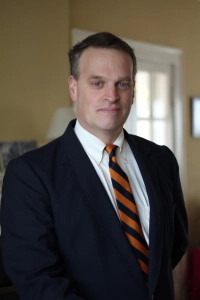In his Poetics, Aristotle asserts that the poet does something that is actually more scientific than the historian. This is rather a shock to us who live in a time whose intellectual fashion compels us to think just the reverse. Although not a “hard science,” history is thought to be something of a science. After all, history is thought to deal with facts and “data” just like science. It is thought to have rigorous scientific methods for establishing its conclusions just like science. History also takes much of its evidence from other fields of study which appear to be “sciences,” like Archeology and Geology.
Nonetheless, hear this:
The poet and the historian differ not by writing in verse or in prose. The work of Herodotus might be put into verse, and it would still be a species of history, with meter no less than without it. The true difference is that one relates what has happened, the other what may happen. Poetry, therefore, is a more philosophical and a higher thing than history: for poetry tends to express the universal, history the particular. By the universal I mean how a person of a certain type on occasion speak or act, according to the law of probability or necessity; and it is this universality at which poetry aims in the names she attaches to the personages. The particular is- for example- what Alcibiades did or suffered.(Bk. I Chapter IX Poetics)
In other words the characters about which we read in the works of poetry think, speak and behave in a way which is far more predictable according to the laws of human behavior than do the characters in history. This also applies to the events in history. One appears to be hardly able to trace any sort of necessary cause and effect relation between the way a battle ought to go and the way it actually goes. History affords us with countless examples of events that appear to have occurred randomly and even against our expectations- whereas the thoughts and deeds of Lucie Manette in Dickens’ A Tale of Two Cities are entirely predictable from beginning to end.
The lovely Lucie Manette…and her crazed father.
This is a good way to start thinking about what Aristotle means… Let us pursue this a little farther…later.






Interesting that Aristotle says this. I don’t agree that literature is supposed to represent universal “types” though; we say that a work of literature is better with regard to characters if it has interesting characters who are unique individuals just like real people in life, not universal types. A character like Lucie Manette is a rather uninteresting and weak character because she is unrealistic in that she does not appear to have any real internal conflicts and is just totally good, and therefore her actions are vaguely predictable, unlike the much more interesting and better character Carson in said novel.
Well, I agree that Carson gives us a little more to talk about insofar as his character is more individuated than Lucie’s, and I am sure you agree, that Lucie’s goodness supplies him with enough reason to sacrifice his own life for the sake of someone she loves. In other words- I would not describe her as “uninteresting.” In a way I think Dickens job in presenting Lucie is largely a matter of simply saying enough about her to stir up in each reader that ideal good and lovely woman for whom one is willing to live or die. Maybe that vision is slightly different for each person- if one were to say that she is sort of generic- I wonder if that is why she is so universally appealing? But I would heartily resist any suggestion that she is “two dimensional.”